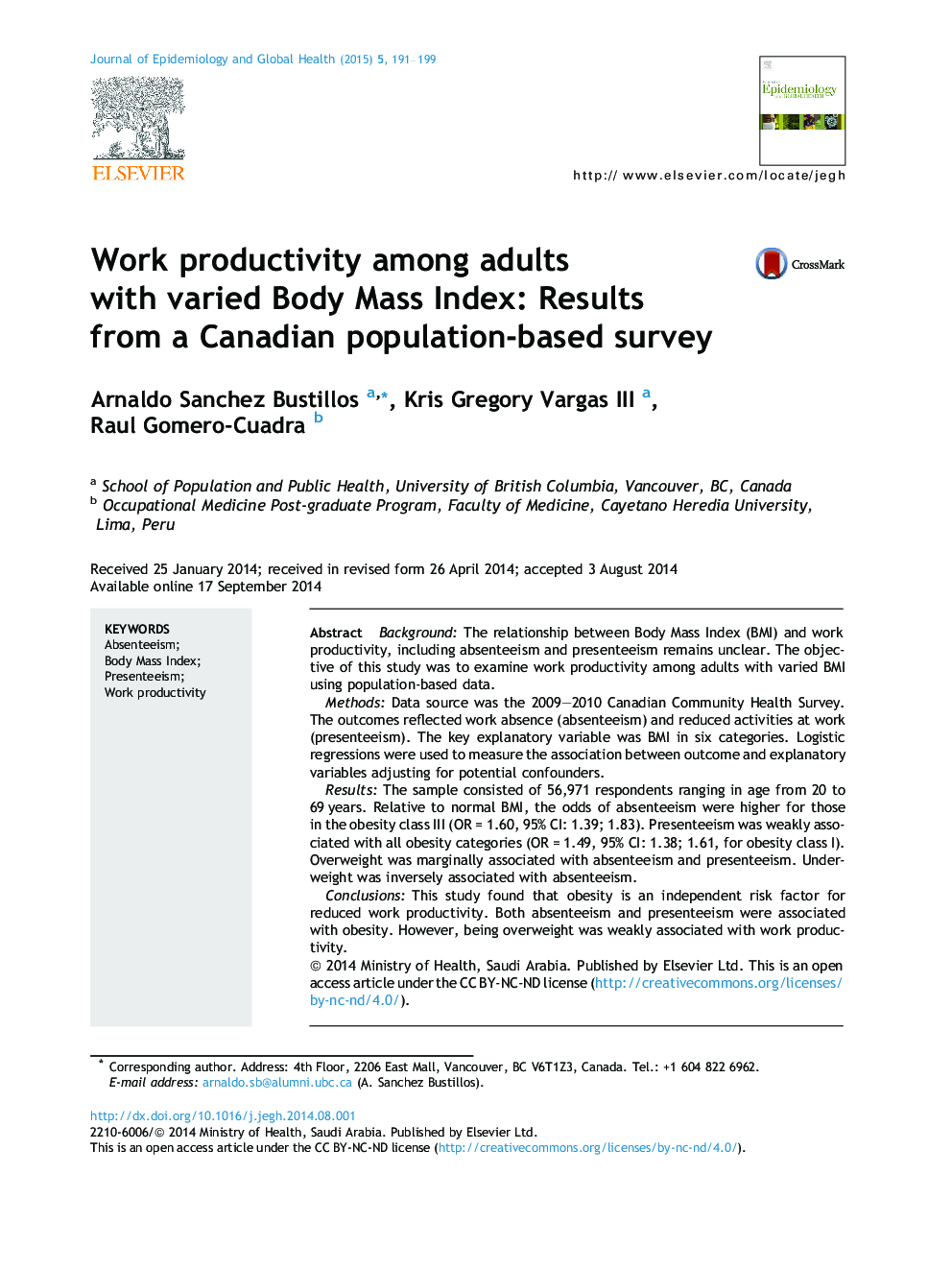| Article ID | Journal | Published Year | Pages | File Type |
|---|---|---|---|---|
| 3327594 | Journal of Epidemiology and Global Health | 2015 | 9 Pages |
BackgroundThe relationship between Body Mass Index (BMI) and work productivity, including absenteeism and presenteeism remains unclear. The objective of this study was to examine work productivity among adults with varied BMI using population-based data.MethodsData source was the 2009–2010 Canadian Community Health Survey. The outcomes reflected work absence (absenteeism) and reduced activities at work (presenteeism). The key explanatory variable was BMI in six categories. Logistic regressions were used to measure the association between outcome and explanatory variables adjusting for potential confounders.ResultsThe sample consisted of 56,971 respondents ranging in age from 20 to 69 years. Relative to normal BMI, the odds of absenteeism were higher for those in the obesity class III (OR = 1.60, 95% CI: 1.39; 1.83). Presenteeism was weakly associated with all obesity categories (OR = 1.49, 95% CI: 1.38; 1.61, for obesity class I). Overweight was marginally associated with absenteeism and presenteeism. Underweight was inversely associated with absenteeism.ConclusionsThis study found that obesity is an independent risk factor for reduced work productivity. Both absenteeism and presenteeism were associated with obesity. However, being overweight was weakly associated with work productivity.
